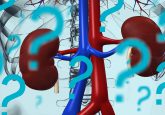New vaccine found to be key to Alzheimer’s prevention

A vaccine previously developed to target inflamed brain cells has been utilized in a novel way to aid potential prevention or modification of the course of Alzheimer’s disease. The research was presented at the American Heart Association’s Basic Cardiovascular Sciences Scientific Sessions 2023.
Researchers at Juntendo University Graduate School of Medicine (Tokyo, Japan) previously developed a vaccine to remove senescent cells expressing senescence-associated glycoprotein (SAGP), which alleviated age-related diseases such as Type 2 diabetes and atherosclerosis in mice. They also found that SAGPs are highly expressed in glial cells within patients with Alzheimer’s disease. This prompted an investigation into the use of the senolytic vaccine to find a way to treat Alzheimer’s disease.
Chieh-Lun Hsiao, lead study author and post-doctoral fellow in the department of cardiovascular biology and medicine at Juntendo University Graduate School of Medicine, commented:
“Alzheimer’s disease now accounts for 50% to 70% of dementia patients worldwide. Our study’s novel vaccine test in mice points to a potential way to prevent or modify the disease. The future challenge will be to achieve similar results in humans, […] If the vaccine could prove to be successful in humans, it would be a big step forward towards delaying disease progression or even prevention of this disease.”
The study was conducted using an Alzheimer’s disease mouse model mimicking a human brain and simulating amyloid-beta-induced Alzheimer’s disease pathology. To test the SAGP vaccine’s efficacy, mice at 2 months and 4 months were treated with the SAGP vaccine or a control. The study mice had anxiety, meaning they were more cautious and aware of their surroundings. This factor was observed during the investigation of the vaccine’s effects, as sufferers in the late stages of the disease experience a lack of anxiety as part of their symptoms.
The study found that the SAGP vaccine had several positive effects on mice. Firstly, it significantly reduced amyloid deposits in the cerebral cortex, responsible for language processing and problem-solving. Secondly, it decreased the size of astrocyte cells, which are involved in brain inflammation. Other inflammatory biomarkers were also reduced, suggesting improved brain inflammation in response to the SAGP vaccine. Additionally, mice vaccinated with the SAGP vaccine performed better in behavior tests, showing increased awareness of their environment. Furthermore, the SAGP protein was found close to microglia, immune cells that clear damaging plaque in the brain but can also cause inflammation contributing to Alzheimer’s disease development. Overall, the SAGP vaccine showed promising results in reducing amyloid deposits and inflammation while improving cognitive behavior in mice.
Hsiao stated further on these results:
“Earlier studies using different vaccines to treat Alzheimer’s disease in mouse models have been successful in reducing amyloid plaque deposits and inflammatory factors, however, what makes our study different is that our SAGP vaccine also altered the behavior of these mice for the better, […] By removing microglia that are in the activation state, the inflammation in the brain may also be controlled. A vaccine could target activated microglia and remove these toxic cells, ultimately repairing the deficits in behavior suffered in Alzheimer’s disease.”
Source: Medical press’ press release, https://medicalxpress.com/news/2023-07-vaccine-key-impact-alzheimer-disease.html






